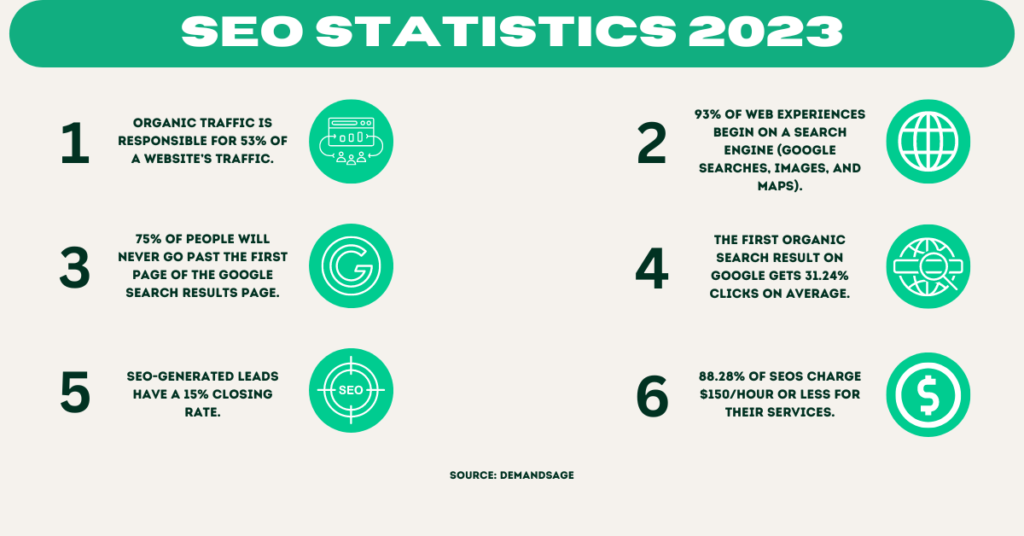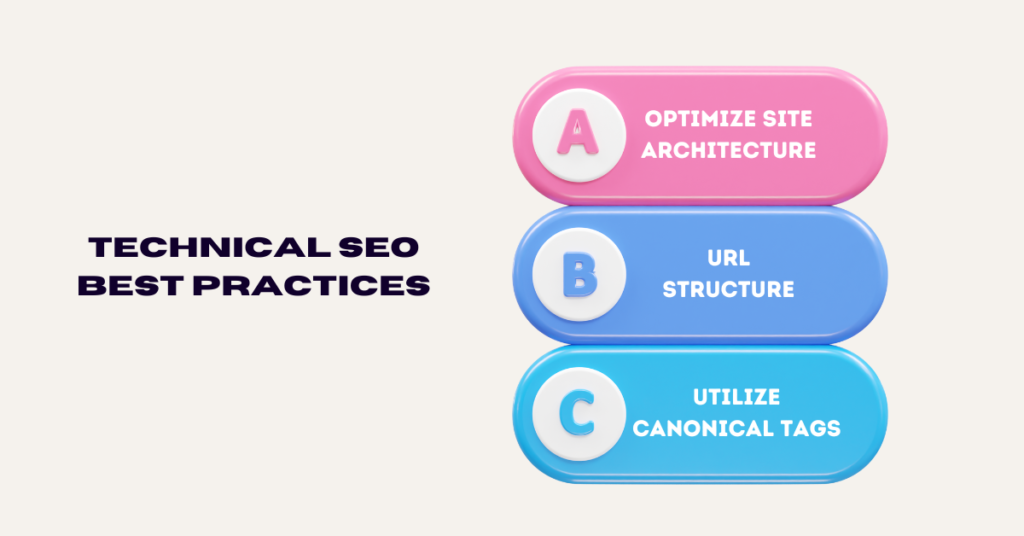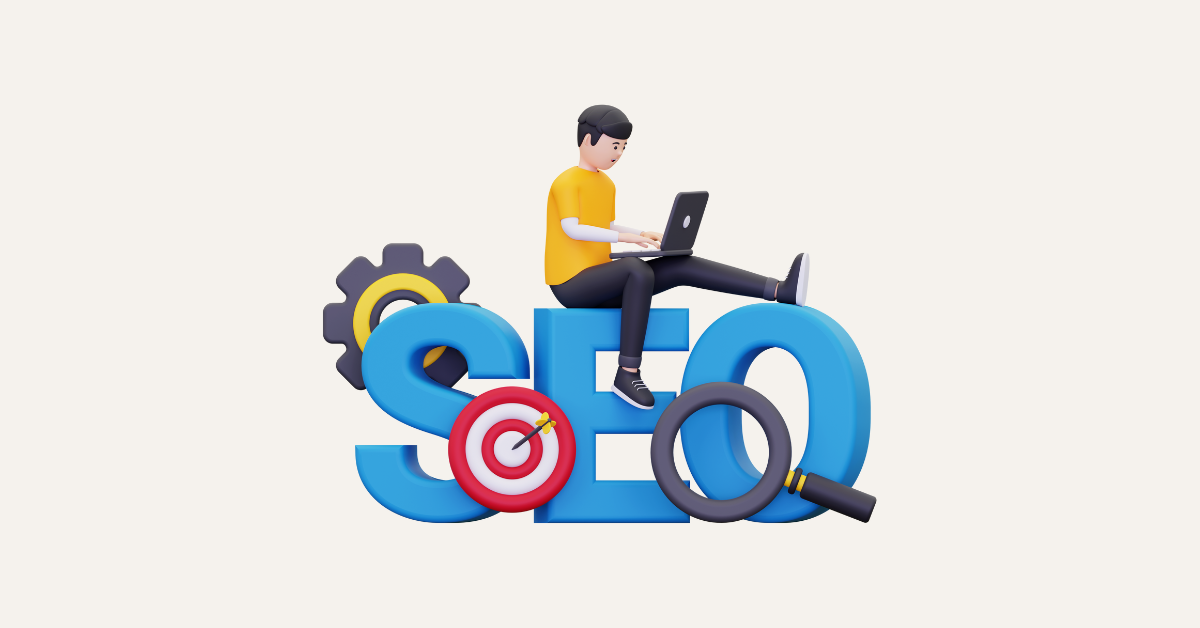Technical SEO: A Comprehensive Guide to Best Practices
Technical SEO is crucial for optimizing a website’s performance, especially for e-commerce.
It involves ensuring proper implementation of hreflang tags, submitting sitemaps to Google, and other critical technical aspects.
It enhances the technical aspects of web pages to improve their visibility and user experience, especially for e-commerce sites.
This can be achieved using tools like Yoast SEO to create a sitemap. This guide provides essential information on technical SEO, emphasizing its significance for website navigation, content optimization, and overall performance in Google.
It covers optimizing pages, links, and content for e-commerce websites. The subsequent sections will cover critical areas such as internal linking, site structure, page speed, and addressing technical issues to enhance search engine snippets with Yoast SEO for web pages, links, and Google.
By focusing on these crucial elements, website owners can ensure that their website’s SEO and technical optimization are optimized for Google and provide an enhanced user experience on their pages.
Technical SEO Fundamentals

Explanation of Crawlability and Indexability
Crawlability refers to Google search engine bots’ ability to access and navigate a website’s pages and links.
At the same time, indexability pertains to the content being included in the search engine’s index by robots.
Both Google and robots are crucial technical aspects of SEO as they directly impact how easily search engines can find and rank a website’s pages. Links and JavaScript also play a significant role in this process.
Importance of Structured Data for Technical SEO
Structured data, often presented as Schema Markup, provides search engines like Google with detailed information about HTML pages and helps robots understand a website’s content.
This additional context allows Google and other search engines to better understand the content on web pages, leading to enhanced visibility in search results through rich snippets and other special search result features.
Using a site audit tool is essential to ensure that the robots can crawl and index the site effectively.
Utilizing structured data is an important technical aspect for improving a site’s performance in organic search, especially on Google.
It helps web pages to be easily understood by robots and can also enhance the functionality of JavaScript.
Significance of XML Sitemaps
XML sitemaps serve as a roadmap for search engine crawlers, guiding them to all essential pages on a website and helping with Google indexing.
By providing this comprehensive list of URLs and metadata, XML sitemaps ensure that search engines like Google discover and index all relevant pages.
This is particularly beneficial for websites with complex structures or those frequently updating their content, as it can improve their visibility on Google search pages.
By understanding these fundamental technical aspects of SEO, web admins and digital marketers can optimize their websites for improved visibility and ranking on Google search engine results pages.
Importance of Technical SEO for Websites

Impact of Technical SEO on User Experience
Technical SEO significantly impacts user experience by ensuring that websites are easily accessible, load quickly, and are mobile–friendly for better ranking on Google’s search pages.
This directly contributes to improved user satisfaction and engagement with the website’s content, boosting its ranking on Google’s search pages.
Influence of Technical SEO on Search Engine Rankings
Technical SEO is essential for optimizing a website’s pages to improve its rankings on Google.
By optimizing technical aspects such as site speed, crawlability, and structured data markup, websites can enhance their chances of ranking higher in search engine results pages (SERPs).
Role of Technical SEO in Website Visibility
Technical SEO is crucial for optimizing website pages and improving visibility on search engines.
Properly implemented technical SEO practices, along with using a site audit tool, enable search engine bots to crawl efficiently and index web pages, leading to increased visibility for relevant search queries.
When technical SEO is prioritized, websites can provide a seamless user experience while complying with search engine guidelines, ensuring that all pages are optimized for better visibility.
This results in improved rankings for website pages, increased organic traffic to specific pages, and ultimately boosts the overall online visibility of the website pages.
Guide to Technical SEO Best Practices

Importance of Optimizing Site Architecture for Technical SEO
Optimizing site architecture is crucial in technical SEO as it influences how search engine crawlers navigate and understand a website’s pages.
A well-structured site architecture ensures that all pages are easily accessible, leading to better indexation and visibility in search results.
Significance of URL Structure in Technical SEO
The URL structure plays a vital role in technical SEO by providing valuable information to users and search engines, especially regarding web pages.
Clear, descriptive URLs containing relevant web page keywords can improve user experience and help search engines comprehend the page’s content, ultimately impacting its ranking.
Utilizing Canonical Tags for Content Optimization
Canonical tags are essential for content optimization in technical SEO as they resolve duplicate content issues by specifying the preferred version of web pages.
By implementing canonical tags correctly, website owners can consolidate link equity and prevent the dilution of ranking signals across similar or identical pages.
On-Page SEO Techniques

Optimize Meta Tags for On-Page SEO
Optimizing meta tags, such as title tags and meta descriptions, is crucial for on-page SEO. It helps improve the visibility of website pages in search engine results.
These tags provide essential information to search engines about the content on web pages, influencing their visibility in search results.
Role of Keyword Research in On-Page Optimization
Keyword research plays a pivotal role in on-page optimization by identifying terms and phrases that users are searching for on their pages.
Integrating relevant keywords strategically throughout the pages’ content helps improve the pages’ visibility and relevance to search queries.
Implementing Schema Markup for Enhanced Search Results
Implementing schema markup, such as rich snippets, can significantly enhance a website’s appearance in organic search results by optimizing its pages.
Providing additional context to search engines about the content on web pages increases the likelihood of earning prominent display features like rich snippets, ultimately driving more organic traffic to those pages.
By optimizing meta tags like title tags and meta descriptions, websites can effectively communicate their content to search engines, helping to improve their ranking on search engine results pages.
This action enhances their chances of ranking well for relevant pages. Strategic keyword research aids in understanding user intent and behavior, allowing websites to tailor their content to meet those needs effectively and rank higher in search engine results pages.
Implementing schema markup improves a site’s visibility and enriches its appearance in search results through enhanced features like rich snippets on web pages.
Leveraging Google Search Console for Technical SEO

Utilizing Google Search Console for Website Performance Analysis
Google Search Console provides valuable insights into a website’s performance, including search queries, click-through rates, average position, and the indexing of pages.
This data helps understand which keywords drive traffic and which pages need improvement.
Importance of Monitoring Website Indexing Through Google Search Console
Monitoring website indexing is crucial as it ensures that search engine spiders can access and index all the necessary pages.
By checking the Index Coverage report in Google Search Console, web admins can identify any indexing issues, such as pages with errors or those excluded from indexing.
Using Google Search Console and a site audit tool to Identify and Fix Technical Issues, Google Search Console is a valuable tool for identifying technical issues on your website.
Using the Yoast SEO plugin, you can easily optimize your title and robot meta tags to improve your site’s performance.
Additionally, a site audit tool can help you identify and fix any underlying technical issues affecting your website’s visibility and ranking.
Google Search Console helps identify technical issues on website pages, like crawl errors, mobile usability problems, and structured data concerns.
For instance, using tools like “URL Inspection,” webmasters can detect issues on specific pages and take corrective actions to enhance their technical SEO.
By leveraging Google Search Console, web admins gain actionable insights into their website’s performance and resolve technical issues that could hinder its visibility on search engines, such as identifying and addressing problematic pages.
Mobile-Friendly Website for Technical SEO Success

Impact of Mobile-Friendliness on Search Rankings
Mobile-friendliness significantly impacts search rankings, as Google prioritizes mobile-friendly websites in its search results.
Websites not optimized for mobile devices may experience lower visibility and reduced organic traffic.
Importance of Responsive Design for Mobile-Friendly Websites
Responsive design is crucial for creating a mobile-friendly website. It ensures that web pages render well on various devices and screen sizes, providing a seamless user experience across different platforms.
This enhances mobile usability and contributes to improved technical optimization for SEO.
Optimizing Website Speed for Mobile Devices
Optimizing website speed for mobile devices is essential for technical SEO success. Fast-loading web pages enhance user experience, reduce bounce rates, and positively impact search engine rankings.
Implementing techniques such as image optimization, minifying CSS and JavaScript files, and leveraging browser caching can significantly improve website speed on mobile devices.
SSL Certificate and Site Speed Optimization
Significance of SSL Certificate for Website Security and SEO
An SSL certificate is crucial for website security, encrypting user and site data. From an SEO perspective, search engines prioritize secure websites, positively impacting rankings.
The load times of sites can significantly affect user experience and search rankings. Utilizing Yoast SEO for technical optimization can help improve site speed and overall performance.
Site speed significantly affects user experience; slow loading times lead to higher bounce rates. Search engines favour fast-loading websites, influencing their ranking in search results.
Utilizing Caching and Image Optimization for Site Speed Improvement
Implementing caching mechanisms can enhance site speed by storing frequently accessed data.
Furthermore, optimizing images through compression and proper formatting can drastically reduce load times.
By ensuring the implementation of an SSL certificate, websites can bolster their security and gain a competitive edge in search engine rankings.
Moreover, prioritizing site speed optimization through caching strategies and image optimization directly contributes to improved user experience and higher search result rankings.
Technical SEO Tools and Website Health Management
Importance of Using Tools Like Screaming Frog for Technical SEO Analysis
When optimizing your website for search engine robots, utilizing tools like Screaming Frog for in-depth analysis is crucial.
This tool can help identify issues affecting search engine spiders’ interpretation of your site, such as missing title tags or incorrect hreflang attributes.
Technical SEO is crucial for optimizing a website’s visibility, and tools like Screaming Frog can help identify technical SEO issues.
This tool crawls websites to analyze keywords such as URLs, title tags, meta descriptions, etc. It provides insights into problems like broken links, duplicate content, or missing meta descriptions.
Monitoring Website Health Through Regular Audits and Diagnostics
Regular site audits are essential for maintaining a healthy website. These audits help identify technical SEO issues such as slow page speed, improper redirects, or crawl errors.
By utilizing site audit tools like SEMrush or Google Search Console, web admins can gain valuable insights into their website’s overall health and performance.
Utilizing Tools Like SEMrush for Comprehensive Website Management
SEMrush offers a suite of features for comprehensive website management. It provides valuable data to improve technical SEO, from analyzing site structure to monitoring core web vitals and managing XML sitemaps.
SEMrush helps identify dead links on the website, which could negatively impact user experience and search engine rankings.
By leveraging these tools and conducting regular diagnostics through site audit tools like SEMrush or Google Search Console, web admins can effectively manage their website’s health and promptly address any technical SEO issues.
Conclusion
Implementing technical SEO best practices is crucial for enhancing website performance and visibility.
By focusing on aspects such as on-page optimization, mobile-friendliness, SSL certificates, and site speed, websites can improve their search engine rankings and provide better user experiences.
Leveraging tools like Google Search Console for monitoring and managing website health further strengthens the technical SEO strategy.
It’s imperative for website owners and digital marketers to continually assess and refine their technical SEO efforts to adapt to evolving search engine algorithms and user behaviours.
By staying informed about the latest trends and updates in technical SEO, they can ensure that their websites remain competitive and relevant in the digital landscape.
Frequently Asked Questions
What is technical SEO?
Technical SEO refers to optimizing a website for the crawling and indexing phase. It involves enhancing site speed, mobile-friendliness, and security to improve a website’s visibility in search engine results.
Why is technical SEO important for websites?
Technical SEO is crucial as it ensures that search engines can crawl and index a website effectively.
By optimizing technical aspects like site speed, mobile-friendliness, and security, websites can improve their visibility and user experience, leading to better rankings in search results.
How can I ensure my website is mobile-friendly for technical SEO success and optimized for search engine robots and spiders?
To ensure your website is mobile-friendly, you should use responsive design, optimize images and media for mobile devices, prioritize loading speed on mobile, and test your site using Google’s Mobile-Friendly Test tool to identify any issues that need addressing.
What are some essential tools for managing website health in technical SEO?
Search engine robots, internal links, hreflang, and Google are crucial for maintaining website health in technical SEO.
Tools like Google Search Console, SEMrush Site Audit, Moz Pro Site Crawl, and Ahrefs Site Audit are essential for monitoring website health in technical SEO. These tools provide insights into crawl errors, broken links, page speed issues, and more.
How does implementing an SSL certificate contribute to technical SEO success?
One way is using a site audit tool to ensure proper site structure and internal links. Additionally, implementing hreflang tags can help with international SEO efforts.
Implementing an SSL certificate helps improve a website’s security by encrypting data transmitted between the user’s browser and the web server.
This enhances user trust and positively impacts search engine rankings by signaling a secure connection.






